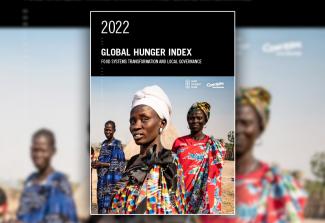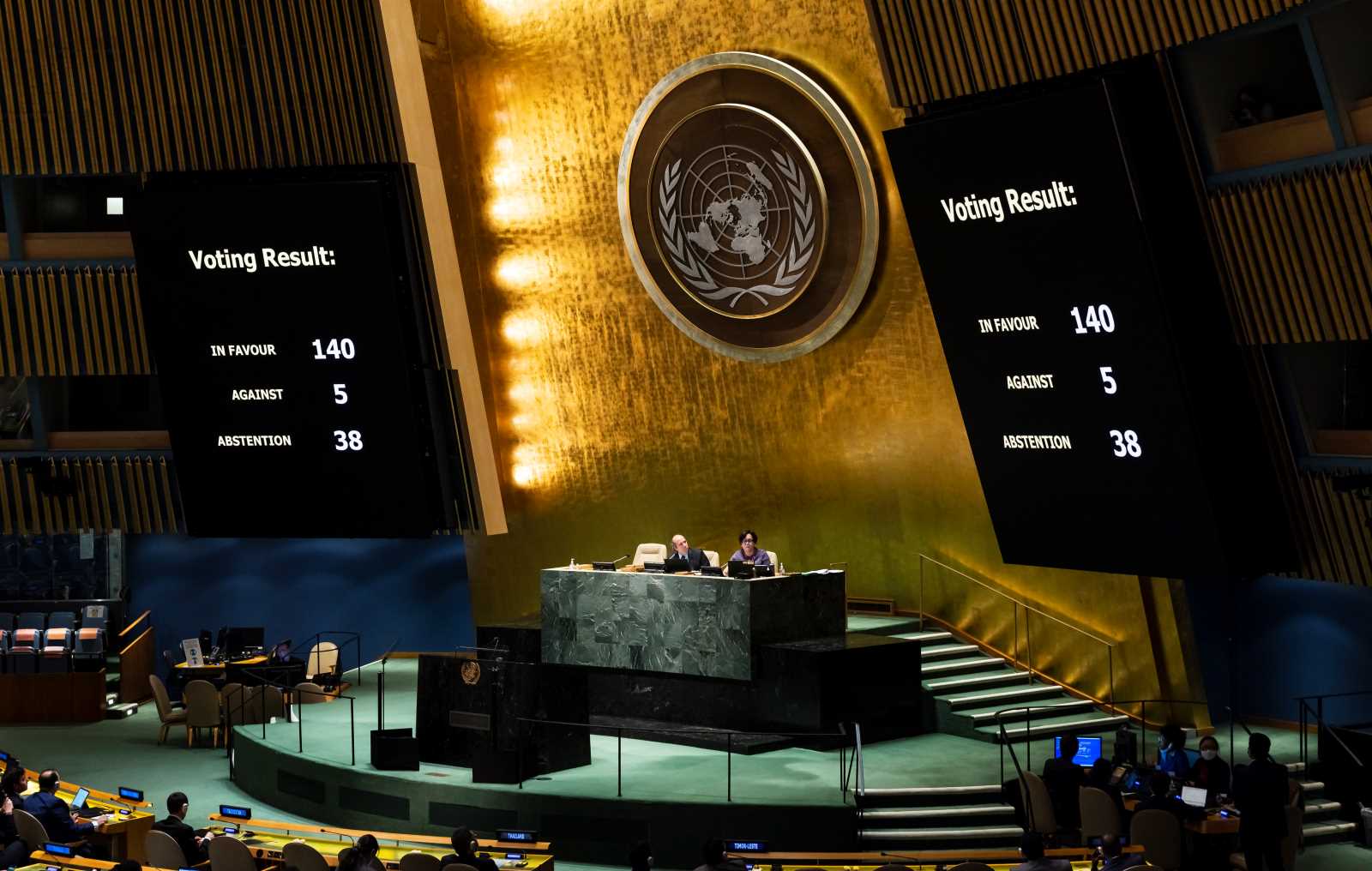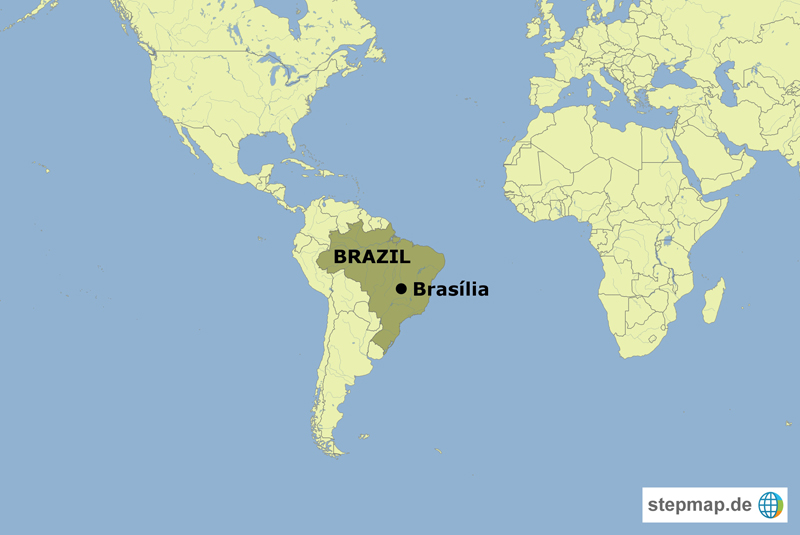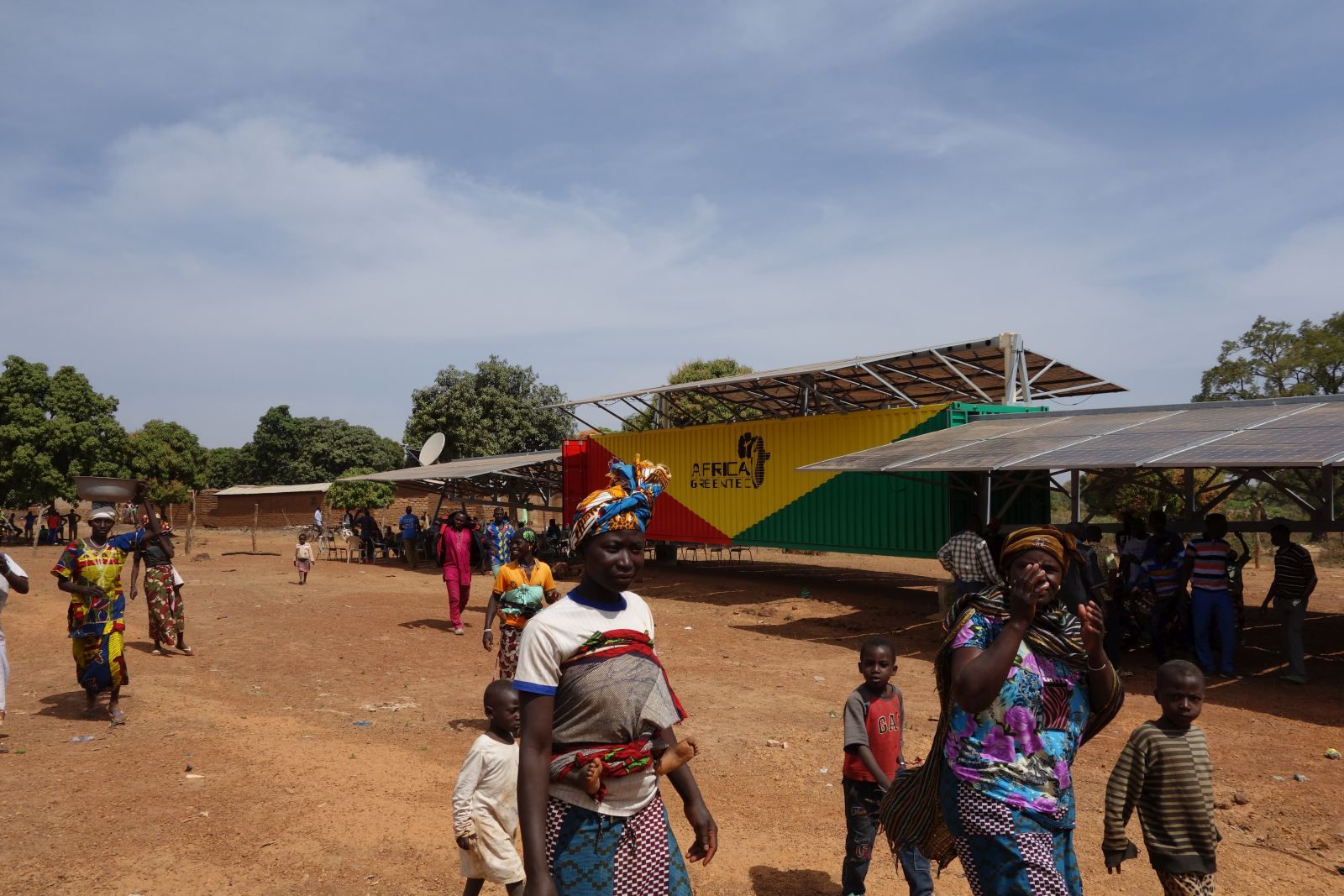Farming
What agriculture-policy reforms must deliver

Humanity is currently not making progress in the fight against hunger, and things are actually getting worse in many places. According to your recently published Global Hunger Index 2022, some 828 million people did not get enough to eat last year. What difference has Russia’s attack on Ukraine made in this context?
It has worsened the need of humanitarian assistance and made the international community aware of just how important grain exports are from both Ukraine and Russia. Import nations depend on shipments of wheat as well as sunflower oil. As exports across the Black Sea stalled, world-market prices rose fast. Due to Covid-19 related supply-chain disruptions, prices had been unusually high even before the war. Today, the FAO’s world-food price index is still quite high, but it has fallen below the record levels of April/May. The situation is nonetheless still alarming because consumer prices are still very high almost everywhere, and even in high-income countries like the USA or Germany, ever more people depend on food banks.
What are the implications for agricultural policy?
Well, the current crisis triggers and reinforces many questions. What should be the future of world trade in agricultural goods? How must the EU’s common agricultural policy change? Which approaches should be taken in cooperation with developing countries? The ongoing debate is hot, and one thing is obvious: business as usual is not an option. We have been discussing environmental problems for quite some time, including the resource and energy intensity of large-scale agriculture, the climate crisis and the erosion of biodiversity. Now we see clearly that the current system actually makes food security quite fragile.
What kind of reforms are needed?
Three things are essential:
- Large farms and livestock systems must be made environment-friendly.
- Smallholder farms must intensify production in ways that do not deplete soils and other valuable resources.
- Regional marketing systems must include smallholders’ produce.
These are complex challenges. Policymakers must change course. The criteria for subsidies must change. We need support for diversification. Fertilisers and pesticides have to be used in a targeted and sparing manner. Moreover, competent advice for smallholders is absolutely indispensable, and it must take into account local specifics. Another vital issue is that smallholder farmers must become starting points of regional supply chains, for instance of supermarkets.
Rural extension services in developing countries and emerging markets have hardly been providing that kind of advice, have they?
No, unfortunately not, even though smallholders are very important. Their traditional knowledge fits the local environment, so they understand, for example, how to use a great variety of landrace seeds, which can be helpful for breeding high-yielding varieties. Humanity can neither afford to lose the genetical diversity of traditional cultivars nor the related knowledge (see Parviz Koohafkan on www.dandc.eu). It also matters that smallholder farming is the only kind of social safety net available in remote rural areas. It should ensure a minimum level of foods as well as incomes.
Many people consider village communities to be backward.
That is a misconception. Smallholders are clever entrepreneurs. They know exactly what they want and need. They are keen on know-how and digital opportunities. We have introduced a mobile phone app that supports collective use of machinery, for example. It is very popular and called AgriShare. People want to be involved and have a say in decision-making.
Is it feasible to boost smallholders’ productivity with agri-science?
Yes it is, and I have seen it happen when I was working for Welthungerhilfe in Mali. At the time, ICRISAT, the International Crops Research Institute for the Semi-Arid-Tropics was breeding its iron and zinc rich pearl millets (see Roli Mahajan on www.dandc.eu). That project was spectacularly successful, and farmers were continuously involved, which was only possible because exchange did not only happen in English or French, but African languages too. ICRISAT’s head office is in India, but it has regional offices in Africa.
The innovative ICRISAT millets are not traditional landraces, however.
So what? We shouldn’t think in terms of either/or in the sense of only traditional varieties being acceptable in contrast to newly bred ones. After all, the landraces have been bred continuously for century after century. What matters is boosting productivity without harming local ecosystems, and the interaction of scientists and farmers is indispensable for that purpose (see Hildegard Lingnau on www.dandc.eu). At Welthungerhilfe, we will increase our efforts in this regard.
What else must policymakers in developing countries bear in mind?
Their goal must be diverse, healthy and nutritious diets for everyone. It is wrong to focus only on producing as many calories as possible. That approach often dates back to the colonial era, without which, for example, maize would not be so important in Africa today. Moreover, the relevance of municipal and other subnational agencies is typically underestimated. We are increasing our efforts to promote good governance at the local level. Local communities must be supported to hold mayors, district administrations or state governments accountable. Welthungerhilfe provides advice and funding to local partners, and they are in the driver’s seat.
What issues are at stake in subnational governance?
Relevant issues include education and health care as well as farm subsidies and extension services. Local infrastructure, moreover, is of great relevance. Things like roads, water supply, electricity et cetera are costly but indispensable. Smallholder farms, after all, cannot flourish without access to markets and processing companies. As subnational institutions have a bearing on these matters, it makes sense for civil society to put pressure on them. At the same time, civil-society organisations must help local people understand what, for example, the national agricultural policy is geared to.
All over the world, farmers with huge land holdings dominate lobbying efforts. The reason is that smallholders are working so hard on their farms that they cannot play a major role in farmers unions. As a result, state subsidies typically help the strong grow stronger, without doing much for the weak.
Nonetheless, experience shows that civil-society mobilisation can make a difference. Liberia’s land reform was a great success in the sense of improving women’s access to land for instance. Civil-society activism can initiate constructive dialogue, and once a government sees that an inclusive approach delivers good results, it starts promoting that approach itself. It wants to succeed after all.
Must nations with high incomes consume less meat and milk?
The current patterns of livestock production violate animal welfare, harm the climate, squander resources and deplete biodiversity. The production of animal feed requires huge amounts of water, fertiliser, pesticides and energy. Our wasteful lifestyle is plainly unsustainable. In my eyes, this isn’t really about renunciation; there are opportunities. It is healthy to eat plant-based proteins instead of animal-based proteins, and they taste good.
How do you assess the role of multilateral institutions – do they mostly serve the interests of prosperous nations?
No, I do not think so. In my eyes, they serve building consensus, which is often difficult. These institutions are important, and their policies change in the course of time. World Bank statements on sovereign debt, for instance, were more generous in the coronavirus crisis than what we were used to in the past. Emerging markets and developing countries, moreover, have become more self-confident and assertive. At the same time, political polarisation is increasingly making the cooperation we urgently need more difficult. Just consider Russia’s invasion of Ukraine. It is important to maintain multilateral exchange in times of crisis nonetheless. In particular, it would be good to strengthen democratically inclusive models such as the UN Committee on Food Security, in which representatives of smallholders and indigenous communities have a say.
Link
Global Hunger Index 2022:
https://www.globalhungerindex.org/download/all.html
Mathias Mogge is the secretary-general of Welthungerhilfe, the Bonn-based German international non-government organisation which compiles the annual Global Hunger Index in cooperation with its Irish partner Concern Worldwide.
mathias.mogge@welthungerhilfe.de
Twitter: @MathiasMogge















